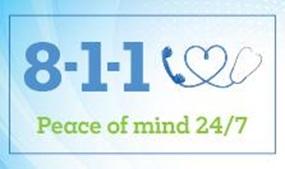Colorectal Cancer Screening Program

The PEI Colorectal Cancer Screening Program offers and promotes cancer screening for Island residents. Colorectal cancer often begins as polyps which are abnormal growths in the colon or rectum that can turn into cancer over time. There are often no warning signs. Finding and removing polyps early increases your chance of preventing colorectal cancer or detecting it early when it is most curable.
How common is colorectal cancer in Prince Edward Island?
Colorectal cancer is a leading cause of cancer in PEI. Between 2018-2022, there were 553 new colorectal cancer cases diagnosed in Island residents. On average, 39 people die from colorectal cancer in PEI each year.
What are symptoms of colorectal cancer?
Colorectal cancer symptoms may be minor or non-existent during the early stages of the disease. Symptoms often occur later, when the cancer may be harder to treat. The most common symptoms include:
- Unexplained changes in bowel habits, such as frequent constipation or diarrhea
- Blood in your stool (poop), that is bright red or dark black
- Persistent abdominal pain and discomfort
- Unexplained weight loss
- Weakness and fatigue
How do I get screened for colorectal cancer?
Screening recommendations are based on whether a person is considered Average Risk or Increased Risk for colorectal cancer:
- A fecal immunochemical test (FIT) is recommended if you are average risk.
- A colonoscopy is typically recommended if you are at increased risk.
How do I know if I am Average Risk for colorectal cancer?
You are at Average Risk for colorectal cancer if:
- You do not have any symptoms of colorectal cancer.
- You do not have a personal history of colorectal cancer or high-risk polyps.
- You do not have a first degree relative (parent, sibling or child) with a history of colorectal cancer or high-risk polyps.
Screening for people at Average Risk is recommended to begin at age 50 using a fecal immunochemical test (FIT). The FIT is a safe and painless at-home colorectal cancer screening test that checks for tiny amounts of blood in the stool (poop) that you cannot see. This blood could be caused by polyps, abnormal growths in the colon or rectum, that can turn into cancer over time. The FIT should be repeated every two years until the age of 74.
For more information about the FIT and to request one, visit Request a Home Screening FIT Kit.
How do I know if I am at Increased Risk for colorectal cancer?
You are at Increased Risk for colorectal cancer if:
- You have a first degree relative (parent, sibling or child) with a history of colorectal cancer or high-risk polyps.
- You have a personal history of colorectal cancer or high-risk polyps.
- You are experiencing symptoms of colorectal cancer.
Screening for people at Increased Risk is typically done with a colonoscopy. For individuals with a family history of colorectal cancer, screening is recommended to begin at age 40 or 10 years earlier than the age at which their youngest affected parent, sibling or child (first degree relative) was diagnosed, whichever comes first.
If you do not have a primary care provider, and you are at increased risk for colorectal cancer because of a personal or family history, you can self-refer for a colonoscopy through the Colorectal Cancer Screening Program. If you are experiencing symptoms, a consultation with a health care professional is recommended. Screening through the program is not appropriate. For more information on Health PEI services, visit Find Health Care.
To self-refer for a colonoscopy because of a personal or family history (and you do not have a primary care provider), visit Request to Self-Refer for a Colonoscopy.
How do I contact the PEI Colorectal Cancer Screening Program?
Call: 1-888-561-2233 (toll-free) or (902) 368-5901
Email: colcerscreening@ihis.org
To speak with a Nurse Navigator with the Colorectal Cancer Screening Program, call 1-855-733-0762 or (902) 288-1123.
|
|
You can now access your laboratory test reports online through your MyHealthPEI account. |
Resources
- Request a Home Screening FIT Kit
- Get Screened for Colorectal Cancer Today Brochure
- Get Screened for Colorectal Cancer Today Brochure (in Mi'Kmaq)
- Home Screening Kit Instructions
- Colonoscopy Information Brochure
- Request to Self-Refer for a Colonoscopy
- Preparing for your Colonoscopy: Adjusting your Diabetes Medication Handout
- Endoscopy Website (Bowel Prep Instructions)
- Canadian Cancer Society
- Colon Cancer Canada



